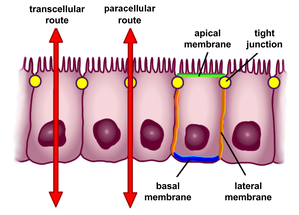 Why have gluten intolerances, food sensitivities, food allergies, and autoimmune diseases become so much more common in modern society? What are some natural, holistic ways to address these issues that can reduce the painful symptoms and heal the gut? In this article I discuss several factors in the development of gluten intolerance and food sensitivities, and offer a suggested protocol on how to address these problems and heal the gut with good nutrition, an elimination diet, herbal medicine, and probiotics to rebalance the gut microbiome and correct a leaky gut. Food Sensitivities and the Human Microbiome Food sensitives, celiac disease (an autoimmune disease triggered by gluten, the protein in wheat) and gluten intolerance have certainly skyrocketed in the last several years. How could this be? There are many factors of course, but the most important factor is the gradual degradation of the human gut microbiome as a result of modern diets and lifestyles. In the last decade a significant amount of research has been done in studying the human microbiome and how it has changed since the advent of modernity. Comparing the gut microbiomes of modernized humans in the U.S. or Europe compared to cultures living agricultural or hunter-gatherer lifestyles, our microbiomes have low diversity and are imbalanced to favor harmful bacteria and fungi as a result of unhealthy modern western diets. These diets include foods we are not evolved to eat including sugar, refined flours, industrial seed oils, junk foods, candy, meat and dairy from confined animal feeding operations. Not only that, but modernized people rarely have adequate exposure to the outdoors or farm animals, both of which help colonize our guts with beneficial bacteria and fungi. The gut microbiome, or the ecosystem comprised of bacteria, yeasts, and viruses that live in our digestive tract, is responsible for an enormous amount of critical bodily functions. The gut microbiome is responsible for educating our immune system to learn what substances we ingest are harmful, and which ones are not. The good species are responsible for competing with and thinning out the populations of harmful species. The good species (called probiotics) help us digest our foods, reduce inflammation, produce hormones and neurotransmitters, and produce short chain fatty acids which direct feed our intestinal cells! We've evolved to need them for many of our most critical functions, and when they are not diverse or exist in the wrong ratios, we might develop digestive issues, allergies, autoimmunity, nutrient deficiencies, food sensitivities, and many other issues.  Diagram of intestinal cells. The yellow dots are junctions between the cells. In a leaky gut, those junctions open to create spaces between the cells. Diagram of intestinal cells. The yellow dots are junctions between the cells. In a leaky gut, those junctions open to create spaces between the cells. Leaky Gut Syndrome Leaky gut syndrome is a common outcome of a long-standing microbiome imbalance, also called dysbiosis. Leaky gut is sometimes called "increased intestinal permeability" because the cells of the intestine separate as a result of inflammation. This separation of the intestinal cells is bad news, because it allows undigested food particles to pass into the blood, causing a systemic immune reaction, allergies, and many other symptoms. Eventually this can lead to the development of autoimmune diseases. Allergies and autoimmunity were essentially non-existent before the modern era because we used to eat traditional whole foods diets, had plenty of outdoor exposure, interacted with wild or farm animals, and did not use antibiotics or harmful chemicals. There are certainly benefits to living more hygienic lives and having access to antibiotics - much fewer of us now die from infections. But there are also drawbacks, as I have described. The goal is have a balanced approach to preserve a robust, diverse microbiome while also taking advantage of the healthier parts of the modern lifestyle. What to do about it? In my class on healing from gluten intolerance and food sensitives, I explain in detail how to address the above issues with a holistic dietary approach, especially an elimination diet. An elimination diet removes potential dietary triggers one by one in hopes of giving the gut a rest to heal. During this elimination, we also can take herbs to speed up the healing process and tighten up the gaps in between the cells of the intestines. In addition, we need to correct dysbiosis with either taking antimicrobial herbs, and/or taking probiotic supplements and fermented foods. Finally, when the symptoms are significantly reduced or under control, we can think about adding back in the old trigger foods one by one to see if we can tolerate them better now. In my class I discuss step by step how to implement an elimination diet, how to avoid common pitfalls, how to choose a good probiotic, and what herbs to take to heal the gut. Once eliminated, some foods we will never add back into a healthy diet, for these foods are not made for human consumption: refined sugars, industrial seed oils (canola oil, "vegetable oil"), conventionally raised meat or dairy, junk food, sodas, or candy. If we have celiac disease or severe gluten intolerance, we will never add glutenous grains back into our diets. That's fine really, grains are not necessary for good nutrition. If you'd like to learn more about the process of healing from gluten intolerance and food sensitivities, you can purchase my 1.75 hr class on the subject here.
0 Comments
Leave a Reply. |
Author
Mica (they/he) is a clinical herbalist, nutritionist, researcher, and writer living in Abenaki territory (Vermont). *************************** Disclaimer: The content of this website and blog is for educational purposes only and should not be considered medical advice. The information provided here is not intended to replace medical care. Archives
July 2024
Categories
All
|
Photo from BotanikGuide
 RSS Feed
RSS Feed
